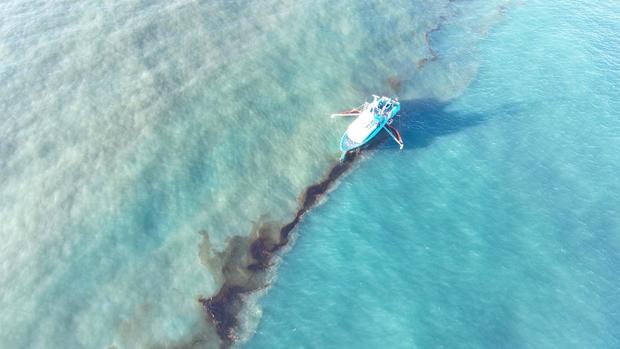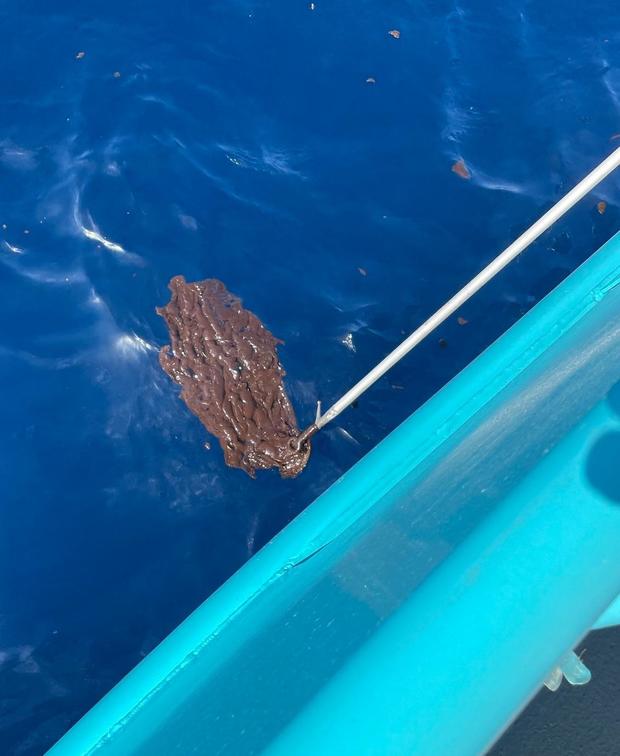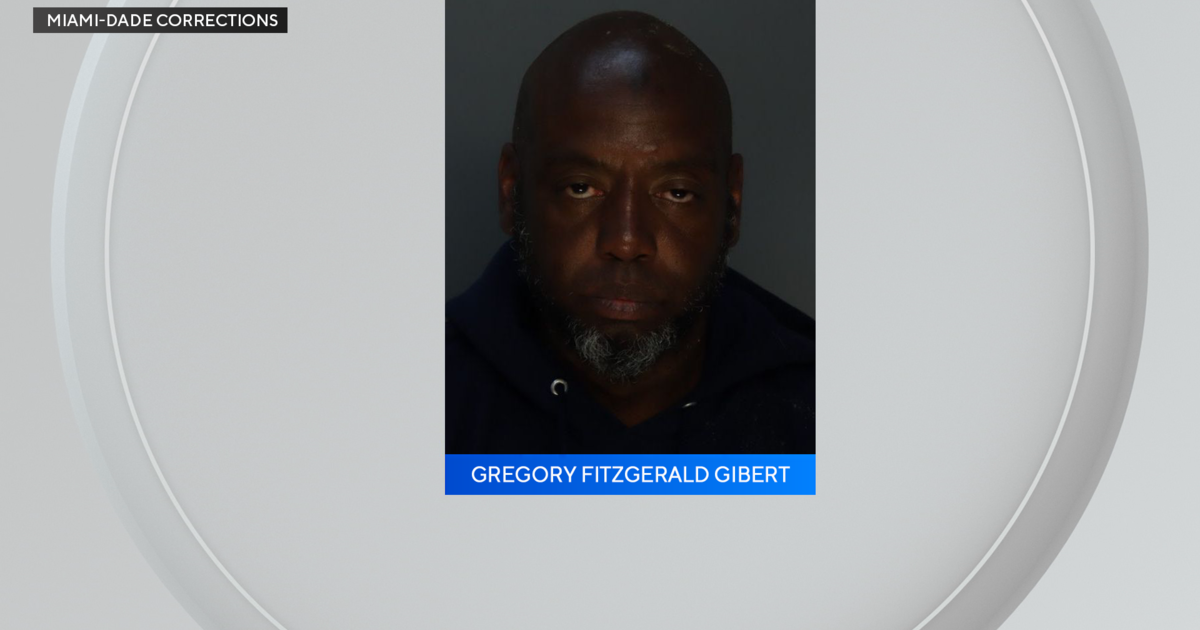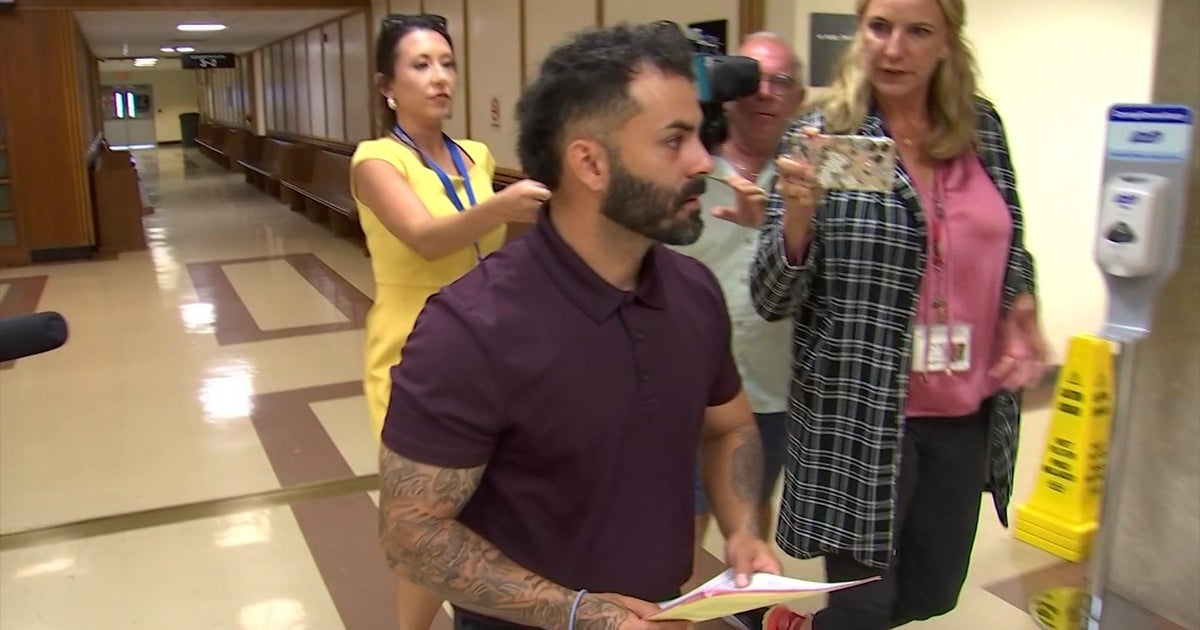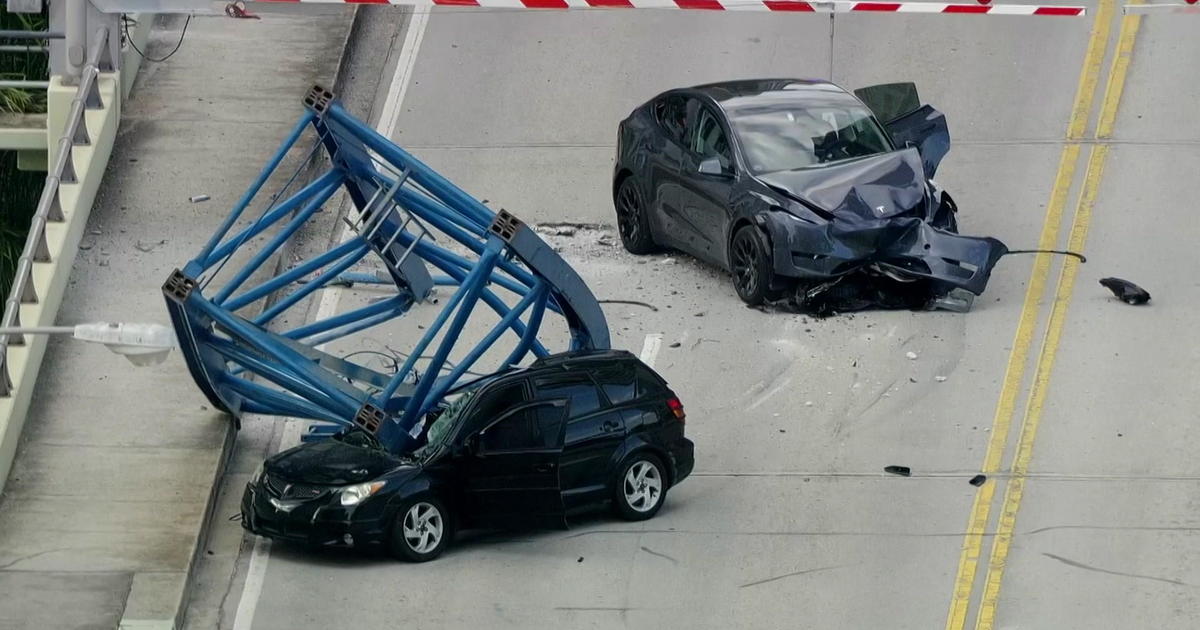1.1 million gallons of oil spilled into the Gulf of Mexico. Over a week later, the source remains a mystery.
More than a week after the U.S. Coast Guard said that an estimated 1.1 million gallons of crude oil leaked into the Gulf of Mexico near a pipeline off the coast of Louisiana, officials said they still have no idea where it came from. Tuesday's update comes amid concerns from environmental experts that the oil's streams and chunky globules could harm endangered wildlife.
The Coast Guard first reported seeing the spill on Nov. 17, saying that an aircrew had identified the leak. Officials said the leak is near the 67-mile-long Main Pass Oil Gathering company's pipeline system near Louisiana's Plaquemines Parish. It was not specified when the leak began, but officials said the pipeline was closed down at 6:30 a.m. on Thursday.
"The volume of discharged oil is currently unknown," officials said last week. "...Initial engineering calculations indicate potential volume of crude oil that could have been released from the affected pipeline is 1.1 million gallons."
On Facebook, the Coast Guard said that oil was "skimmed and sampled" roughly four miles southeast of South Pass, Louisiana, on Nov. 17, at which point they retrieved about 210 gallons of "oily-water mixture." More oil was retrieved on Sunday about 13 miles southeast of the parish.
Photos of the spill show large chunky globules and long slicks of oil floating on the Gulf's surface.
Plaquemines Parish officials wrote on Facebook immediately after the incident was announced that they are "monitoring the incident," but have not posted any further updates.
But the source of the oil spill remains a mystery.
In their latest update released on Tuesday, the Coast Guard said "the cause and source of the incident remain under investigation."
"Remotely operated vehicles (ROVs) and divers are continuing to survey multiple pipelines in the area. More than 39.5 miles of the main pipeline have been inspected, with no damages or indications of a leak identified," the Coast Guard said, adding that they have not observed any new oil deposits into the area. "ROVs have also inspected more than 6 miles of surrounding pipelines, also with no damages or indications of a leak identified."
Matt Rota, senior policy director for Healthy Gulf, previously told CBS affiliate WWL-TV that the amount of oil thought to have spilled could still increase.
"Especially when estimates come from companies...their business interest is to show that the smaller amount is coming out because they are liable for fines," Rota said.
NOAA is helping oversee the incident, and the agency's emergency operations coordinator Doug Helton told WWL that it's not necessarily the amount of oil, but its impact, that is of most concern.
"There are endangered and threatened species in Louisiana waters. Most of the coastal Louisiana is wetlands and marshes, and that's typically considered really sensitive to oil," he said. "...Even if this doesn't make it ashore, it doesn't mean that this is an incident that we can just ignore. There are a lot of things that live out in the gulf."
The Coast Guard said on Tuesday that recent assessments have "identified no wildlife or shoreline impacts," but for Helton, turtles are "probably one of the biggest concerns that we might have."
Just north of the spill and Plaquemines Parish lies the Chandeleur Islands, where last year, the world's most endangered sea turtle species, the Kemp's Ridley, was found hatching for the first time in three-quarters of a century. This species is the world's smallest sea turtle species that has been considered endangered in the U.S. since 1970. Globally, they're considered critically endangered by the International Union for Conservation of Nature and Natural Resources, meaning they are at "extremely high risk of extinction in the wild."
The Gulf is also home to what's considered some of the most endangered whales in the world.
NOAA revealed last year that Rice's whales, which can grow to be longer than a full-size school bus, are the only baleen whales known to inhabit Gulf waters. They're primarily located between Louisiana and Florida, and NOAA believes that there are fewer than 100 of the whales remaining. Pipelines are a major risk to their existence, scientists have warned.
"Continued oil and gas development in the Gulf represents a clear, existential threat to the whale's survival and recovery," a group of 100 scientists said in a letter to the Biden administration last year. "The government's Natural Resource Damage Assessment on the Deepwater Horizon oil spill estimates that nearly 20% of Gulf of Mexico whales were killed, with additional animals suffering reproductive failure and disease."
You can call the NOAA hotline at 713-703-5297 to report wildlife that may have been impacted by the spill.
